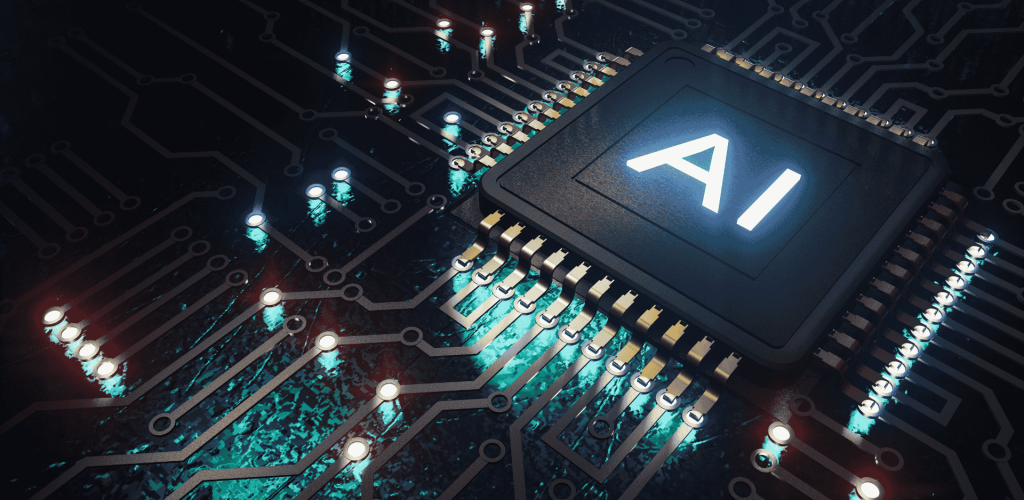
What is AI?
At its core, Artificial Intelligence (AI) refers to machines or computers that are designed to perform tasks that typically require human intelligence. These tasks can include:
Learning from experience
Understanding language
Recognizing patterns
Solving problems
Making decisions
In simple words, AI allows machines to “think” and “act” in ways that seem smart or human-like.

A Brief History of AI
The idea of creating intelligent machines isn’t new. It dates back to ancient times when myths spoke of robots and mechanical beings. However, modern AI really started in the 1950s when scientists like Alan Turing asked the question: “Can machines think?”
Since then, AI has gone through many stages, from simple rule-based programs to today’s complex machine learning and deep learning systems that can beat humans at chess, drive cars, and even generate art.
How Does AI Work?
AI works by processing large amounts of data, learning patterns from it, and using those patterns to make predictions or decisions. Here are a few basic concepts:
Machine Learning (ML): A type of AI where machines learn from data without being explicitly programmed. Example: Netflix suggesting shows based on what you watch.
Deep Learning: A more advanced type of ML that uses neural networks — structures inspired by the human brain — to recognize patterns like faces or voices.
Natural Language Processing (NLP): This allows AI to understand and respond in human languages, like Siri, Alexa, or ChatGPT.
Examples of AI in Daily Life
AI is all around us, even if we don’t always notice. Here are some common examples:
Smartphones: Voice assistants like Siri and Google Assistant
Social Media: Facebook and Instagram using AI to suggest friends or content
Online Shopping: Amazon recommending products based on your past purchases
Navigation Apps: Google Maps predicting traffic and suggesting routes
Healthcare: AI helping doctors analyze X-rays and diagnose diseases
Most Popular AI Tools We Use Every Day
Here are some widely used AI tools that are shaping the way we live and work:
1. ChatGPT
Developed by OpenAI, ChatGPT is an advanced chatbot that understands and generates human-like text. It’s used for answering questions, writing articles, coding assistance, and even tutoring.
2. DeepSeek
DeepSeek is a new generation AI search engine and chatbot that provides deep, accurate, and context-aware information retrieval, perfect for research, content creation, and knowledge discovery.
3. Google Bard (Now Gemini)
Google’s AI chatbot that integrates tightly with Google Search, offering conversational answers, summaries, and creative content generation.
4. Midjourney
An AI tool for creating highly detailed and artistic images from text prompts. It’s widely used by designers, marketers, and content creators.
5. DALL·E
Another product by OpenAI, DALL·E generates realistic images and art from simple text descriptions.
6. Grammarly
Grammarly uses AI to check grammar, spelling, and tone of writing, helping millions to write better emails, articles, and documents.
7. Spotify AI DJ
An AI-based DJ that personalizes your playlist experience by analyzing your listening habits and introducing you to new music.
8. YouTube’s AI Recommendations
YouTube’s recommendation algorithm suggests videos you might like based on your viewing history and interests.
Why is AI Important?
AI is transforming industries and making life easier in many ways. Here’s why AI matters:
Efficiency: AI can automate boring or repetitive tasks.
Accuracy: AI can help detect errors that humans might miss.
Innovation: AI leads to new products, services, and opportunities.
Personalization: AI tailors experiences to individual needs, like curated playlists on Spotify.
However, it’s also important to understand that AI raises important questions about ethics, privacy, and the future of jobs — topics that are still being debated today.
The Future of AI
Looking ahead, AI is expected to:
Drive self-driving cars
Create smarter virtual assistants
Help in medical research and drug discovery
Improve education through personalized learning
Power smarter cities with better traffic and energy management
At the same time, researchers and policymakers are working hard to ensure AI is developed responsibly and benefits everyone.
Final Thoughts
Artificial Intelligence is not just a buzzword; it’s a powerful technology shaping our future. While it may seem complex, the basic idea is simple: machines that can “learn” and “think.” Understanding the basics of AI today can help you prepare for the exciting changes tomorrow.
Whether you use a voice assistant, scroll through your favorite social media app, or shop online, you’re already interacting with AI. And as AI continues to grow, so will its impact on every part of our lives.
FAQs About AI
Q1: Is AI dangerous?
AI itself isn’t dangerous, but how it’s used can be. That’s why experts stress responsible development.
Q2: Do I need to know coding to understand AI?
No! You can understand the basics of AI without knowing programming.
Q3: Will AI take away all jobs?
AI will change many jobs, but it will also create new types of jobs, especially in tech, healthcare, and education.
